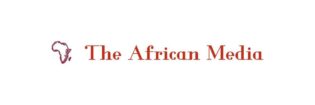Captain Ibrahim Traoré, Burkina Faso’s 36-year-old leader, has transcended his 2022 coup to become a symbol of pan-Africanism. His rejection of Western influence and advocacy for African sovereignty resonate across the continent, inspiring youth and reshaping regional dynamics. Traoré’s rise highlights a growing demand for self-determination amid complex geopolitical challenges.
In September 2022, Traoré ousted Lieutenant Colonel Paul-Henri Sandaogo Damiba, citing governance failures and unchecked jihadist violence. His coup, Burkina Faso’s second that year, tapped into widespread frustration with foreign exploitation and economic stagnation. Traoré’s youth and bold rhetoric positioned him as a champion of the marginalized, laying the foundation for his broader influence.
Traoré’s appeal stems from his fierce critique of neocolonialism. He accuses Western powers, particularly France, of perpetuating dependency through military and economic control. In 2023, he expelled French troops and ended military agreements, pivoting to Russia for security and energy partnerships. His formation of the Alliance of Sahel States (AES) with Mali and Niger, withdrawing from ECOWAS, emphasizes regional self-reliance. Traoré’s calls for African unity and resource control echo Kwame Nkrumah’s pan-African ideals, resonating with youth disillusioned by globalization’s inequities.
Traoré’s influence extends beyond Burkina Faso. Pro-Traoré rallies have erupted in countries like Ghana and Nigeria, with diaspora communities in Europe and the U.S. organizing solidarity protests. Social media, particularly X, amplifies his message, with users praising his defiance of Western hegemony. South Africa’s Economic Freedom Fighters (EFF) have endorsed Traoré, aligning his resource nationalization with their anti-imperialist agenda. However, critics, including urban elites and pro-democracy groups, protest his media crackdowns and authoritarianism, with some Paris-based demonstrations allegedly backed by France.
Traoré’s alignment with Russia and interest in BRICS’ multipolar vision bolster his pan-African credentials. While not a BRICS member, his policies mirror the bloc’s challenge to Western dominance, earning indirect support at forums like the 2024 Kazan Summit. Western nations, particularly France and the U.S., criticize his Russian ties and gold policies, fearing regional instability. The Africa Institute on Governance and Security (AIGS) urges democratic reforms to sustain his legitimacy.
Read also: Captain Ibrahim Traoré: Africa’s Youngest Leader Challenges Western Influence
From a coup-born leader to a pan-African icon, Ibrahim Traoré’s appeal lies in his unapologetic push for sovereignty. While his vision inspires millions, it faces hurdles from domestic dissent and global tensions. His influence will shape Africa’s quest for self-determination.







